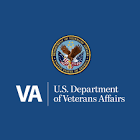United States Department of Veterans Affairs

Total capacity of implemented projects
up to 10 MW
Countries of projects presence
1
The United States Department of Veterans Affairs (VA) is a federal agency that provides healthcare, benefits, and other services to veterans and their families. The VA was established in 1930 and has since grown to become the largest integrated healthcare system in the United States, serving over 9 million veterans each year.
The VA operates a network of medical centers, clinics, and other healthcare facilities across the country, providing a wide range of medical services to veterans. These services include primary care, specialty care, mental health services, and rehabilitation and prosthetic services. In addition to healthcare, the VA also provides benefits and services to veterans, such as disability compensation, education and training, and home loans.
The VA is committed to providing high-quality, patient-centered care to veterans, and has implemented a number of initiatives to improve the quality and efficiency of its services. One such initiative is the VA's Patient Aligned Care Teams (PACT) program, which aims to provide veterans with personalized, coordinated care that is tailored to their individual needs and preferences. The PACT program emphasizes preventive care, patient education, and self-management, and has been shown to improve patient outcomes and satisfaction.
In addition to its healthcare and benefits services, the VA is also involved in renewable energy projects. The VA has set a goal to increase its use of renewable energy to 20% by 2020, and has implemented a number of initiatives to achieve this goal. These initiatives include the installation of solar panels, wind turbines, and other renewable energy systems at VA facilities across the country.
One example of the VA's renewable energy projects is the solar panel installation at the VA Medical Center in Northport, New York. The solar panels, which were installed in 2016, are expected to generate over 1.3 million kilowatt-hours of electricity each year, reducing the facility's carbon footprint and saving the VA an estimated $300,000 in energy costs annually.
The VA's renewable energy projects not only help to reduce the agency's environmental impact, but also provide economic benefits to local communities. Many of the VA's renewable energy projects are implemented through partnerships with local utilities and renewable energy companies, creating jobs and stimulating economic growth in the surrounding areas.
Despite its many successes, the VA has faced criticism in recent years for its handling of certain issues, such as long wait times for medical appointments and inadequate mental health services. The VA has taken steps to address these issues, including hiring additional staff, expanding access to care, and implementing new programs and initiatives to improve the quality and efficiency of its services.
Overall, the United States Department of Veterans Affairs is a critical agency that provides essential healthcare, benefits, and services to veterans and their families. Through its commitment to patient-centered care and renewable energy projects, the VA is working to improve the health and well-being of veterans while also promoting a more sustainable future for all Americans.